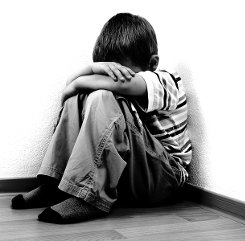Finding effective checks for kids' mental health
 Studies are looking into the effectiveness of mental health checklists filled out by parents when their child was aged 4-5 years, to see if they can accurately identify future risks.
Studies are looking into the effectiveness of mental health checklists filled out by parents when their child was aged 4-5 years, to see if they can accurately identify future risks.
New research from the University of Adelaide has shown that while mental health screening of children at ages 4-5 can help to predict mental health problems in later years, just a quarter of children can be accurately identified with the method.
The researchers compared checklists on children aged 4 to 5 years with cases of teacher-reported mental health problems at ages 6 to 7. The study used data from more than 2100 children who participated in the Longitudinal Study of Australian Children when they were aged 4-5 and 6-7 years.
“The difficulty of accurately identifying young children at risk for future mental health problems poses a major challenge, especially for the implementation of effective, targeted intervention programs,” she says.
Dr Sawyer says only around 25 per cent of the children with high levels of teacher-reported problems at age 6-7 could be correctly identified on the basis of parent reports at age 4-5 years.
“However, approximately 75% of the children identified as ‘at risk’ at age 4-5 years did not go on to experience high levels of problems at age 6-7 years,” she said.
“This speaks to the difficulty of screening being able to clearly identify individual children who will experience a high level of problems two years later when they are in their first years of school.”
“These findings suggest that we could potentially reduce the number of children experiencing mental health problems at age 6-7 years by 25%. However, if treatments are stigmatising and expensive then 75% of the children at age 4-5 years who were falsely identified would be put at risk of receiving interventions that they may not need,” Dr Sawyer says.
The study was funded by the National Health and Medical Research Council (NHMRC), results have been published online ahead of print in the Australian and New Zealand Journal of Psychiatry.







 Print
Print